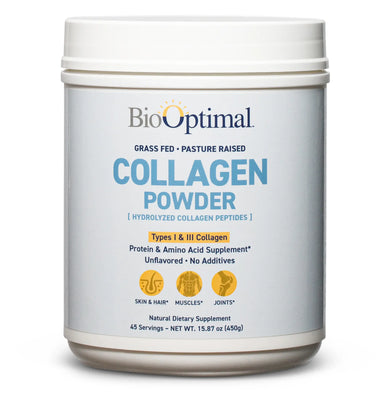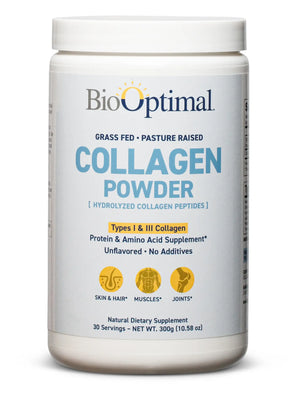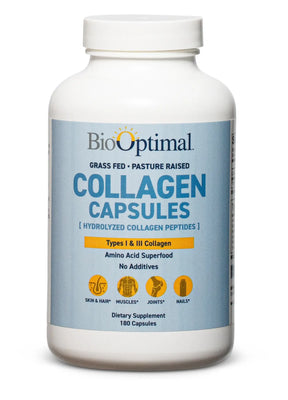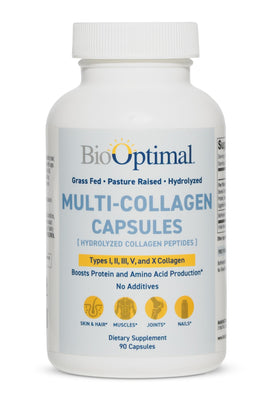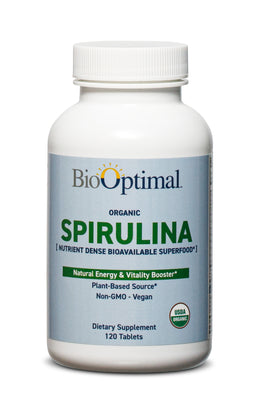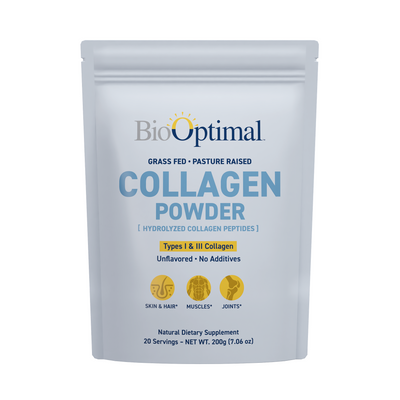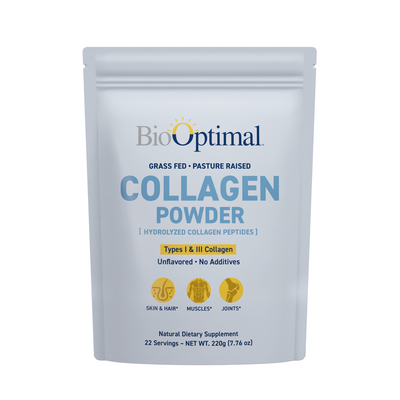Table of Contents:
Peptides are gaining popularity among teenagers, especially in areas like skincare and athletic performance. From boosting skin health to supporting muscle growth, peptides offer many benefits. But are they safe for teenagers? This question is particularly important as more young people look for supplements like collagen peptides to improve their skin's appearance or sports performance.
Peptides for teenagers are short chains of amino acids that is vital for bodily functions, including building proteins like collagen and promoting muscle repair. While they might offer benefits such as improved skin elasticity and faster muscle recovery, there are also potential risks, especially for developing bodies.
This article provides a balanced overview of peptides, exploring their benefits, possible side effects, and guidelines for teenage use. Understanding these aspects can help teenagers and parents make informed decisions about peptide supplementation.
What Are Peptides?
Acting as building blocks for protein, Peptides are essentially short chains of amino acids. They enable different biological processes, including hormone regulation, immune function, and tissue repair. For teenagers, peptides are vital as they support growth and muscle development during puberty, helping the body build and repair tissues more efficiently.
Peptides for teenagers are gaining attention due to their potential benefits in areas like skincare and athletic performance. Some teens are exploring peptide supplements for youth to improve muscle growth, improve recovery times, or maintain healthy skin. These supplements typically contain specific amino acid chains to stimulate collagen production or support muscle repair.
While peptides occur naturally in foods like eggs, meat, and dairy, supplements offer a concentrated dose. However, understanding how such supplements interact with a developing body is crucial to ensure safe and effective use.
Common Types of Peptides
The following are some of the common types of peptides for teenagers:
Collagen Peptides
Collagen peptides support skin elasticity, joint health, and overall connective tissue strength. They are popular among teenagers looking to maintain clear, youthful skin or support joint health during growth spurts. Since collagen production diminishes with age, many prefer peptides for teenagers to uplift their skin's appearance or reduce joint discomfort from physical activities. Although collagen peptides are generally safe, choosing high-quality sources and taking professional advice is essential.
Creatine Peptides
Creatine peptides are widely used for muscle development during puberty, especially among young athletes, aiming to improve strength and performance. Unlike traditional creatine, creatine peptides are more easily absorbed due to their shorter amino acid chains, making them an appealing option for teenagers seeking quicker muscle recovery and increased energy levels. These peptide supplements for youth can support athletic performance but should be used responsibly to avoid potential side effects, such as dehydration or digestive discomfort.
Other Relevant Peptides
Beyond collagen and creatine, other peptides like ghrelin and peptide YY (PYY) play significant roles in regulating appetite and metabolism. Ghrelin stimulates hunger, while PYY promotes a feeling of fullness. Although these peptides naturally occur in the body, some teenagers are curious about supplements that may influence metabolism or weight management. However, manipulating appetite-regulating peptides can impact hormonal balance, particularly during puberty. Therefore, it's crucial to approach these supplements cautiously and seek medical advice before considering their use.
Peptides in Skincare for Teenagers
Peptides can benefit teenage skin by supporting acne treatment and reinforcing the skin barrier. Collagen peptides for teenagers are particularly popular for uplifting skin elasticity and promoting a clear complexion. These peptides help reduce acne scars and improve overall skin texture by stimulating collagen production. Additionally, they improve the skin’s protective barrier, reducing sensitivity and irritation.
When choosing peptide-based skincare, selecting products suitable for youthful, sensitive skin is crucial. Teenagers should avoid overly potent formulas that could cause irritation or breakouts. Consulting with a dermatologist ensures safe and effective use tailored to individual skin needs.
Peptides in Sports and Fitness
Peptides for teenagers are often marketed for muscle growth and faster recovery, particularly in sports and fitness. Specific peptides support protein synthesis and tissue repair, making them appealing to active adolescents. However, while they may improve muscle development and reduce soreness, scientific evidence on their effectiveness in teenagers remains limited.
Using peptides in sports raises ethical and regulatory questions, especially for young athletes. Some peptides are banned in competitive sports due to their performance-uplifting effects. Teenagers should be cautious about using peptide supplements, as misuse can have long-term health consequences and violate sports regulations. Consulting with a coach or healthcare provider is recommended.
Health Implications of Peptide Use in Teenagers
Some peptides can influence hormone levels, potentially affecting adolescent growth and development. For example, growth hormone-releasing peptides may alter natural hormone balance, impacting height and puberty progression. Peptides for teenagers should be used cautiously, as hormonal disruption during critical growth phases can have lasting effects.
Peptides like ghrelin and peptide YY (PYY) regulate appetite and metabolism, influencing weight and energy balance. While these peptides occur naturally, supplementing them may affect eating patterns and overall health. Teenagers must know about potential risks, including disordered eating or metabolic changes. Consulting a healthcare professional ensures safe and appropriate use.
Expert Opinions and Research Findings
Current research on peptides for teenagers is limited but growing, particularly in areas like skincare and athletic performance. Most studies focus on adults, leaving a gap in understanding how peptides affect developing bodies.
-
Dermatologists acknowledge that collagen peptides for teenagers can improve skin elasticity and aid in acne recovery. However, they stress moderation to avoid over-stimulation of the skin.
-
Sports medicine experts caution against using performance-improving peptides in adolescents, citing potential hormonal disruptions and ethical concerns in competitive sports.
-
Endocrinologists emphasize that peptides influencing hormone levels, like growth hormone-releasing peptides, could interfere with puberty and natural growth processes.
-
The consensus is that while some peptides may offer benefits, more long-term studies are needed to understand their safety and efficacy in teenagers fully.
-
Anecdotal evidence suggests collagen peptides for teenagers helped reduce acne scars and uplift skin texture. However, individual results varied, indicating the need for personalized skincare approaches.
-
Reports of appetite-modulating peptides affecting eating habits in teenagers underscore the importance of cautious use, particularly for those with a history of disordered eating.
Guidelines for Teenagers Considering Peptide Use
Always consult a nutritionist before starting any peptide regimen. This is crucial for assessing individual health needs and avoiding negative interactions with existing medications or conditions.
-
Dermatologists can recommend safe peptide-based skincare products, while sports medicine specialists can advise on performance-related peptides.
-
Endocrinologists should be consulted when considering peptides that influence hormone levels, as these can affect growth and puberty.
How To Choose The Right Product?
-
Choose reputable brands that provide transparent ingredient lists and third-party testing for safety and efficacy.
-
Avoid products with unnecessary additives or high concentrations that could irritate sensitive teenage skin or disrupt hormonal balance.
-
For collagen peptides for teenagers, opt for hydrolyzed forms for better absorption and gentler effects on the digestive system.
Tips To Take Peptides Correctly
Start by taking minimum effective dose to gauge the body’s reaction and minimize the risk of side effects. Monitor for adverse effects such as skin irritation, digestive issues, or hormonal imbalances like mood swings or changes in appetite. Discontinue use in case any adverse symptoms occur and consult a healthcare provider. Use peptides as directed, avoiding overuse to reduce the risk of dependency.
Wrapping Up
This article goes in-depth on the growing interest in peptides for teenagers, covering their benefits in skincare and athletic performance, as well as potential risks like hormonal imbalances. We discussed different types, including collagen peptides for teenagers and creatine peptides, and highlighted expert opinions and research findings. Safety guidelines emphasized consulting healthcare professionals, choosing reputable products, and monitoring for side effects.
Peptides can offer benefits but should be used responsibly, especially during adolescence. Always seek professional advice before starting any peptide regimen.
Check out BioOptimal Supplements for trusted, high-quality options to support your health journey.


